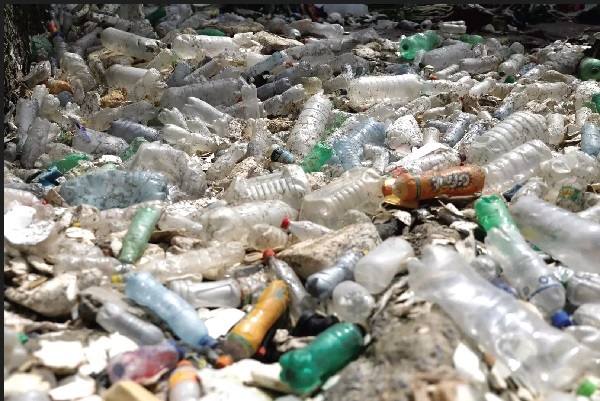The Operations Manager at the World Bank Ghana Office, Michelle Keane, has called for a united front in the fight against plastic pollution in Africa.
She said with the active participation of both the private and public sectors, the continent would be able to overcome the plastic menace which is costing West Africa between $10,000 and $33,000 per tonne of plastic waste.
In her keynote address at a workshop organised by the World Bank to Support West Africa’s Regional Action on Plastics Management in Accra, she said as West African economies grew, so did the surge in plastic waste in the rivers and along the coastlines.
She said plastic pollution severely impacted West Africa's economy, lives and livelihoods, with fisheries, aquaculture, marine tourism, waterfront property, biodiversity and ecosystems also vulnerable, with both sectors facing an estimated social damages of $2,000 to $7,000 per tonne of plastic waste.
She said the World Bank was committed to the eradication of plastic pollution, adding that this was exemplified by its support to work on plastic management and the circular economy in West Africa.
“We have supported technical assistance for policy reforms aimed at adequately taxing plastic products and holding producers accountable for the entire life cycle of their items across various countries.
“We are also championing initiatives such as establishing standards for recycled Polyethylene terephthalate (PET) in Ghana and Cote d’Ivoire, conducting recycling pilots for fishing nets in Liberia and designing Extended Producer Responsibility schemes in Nigeria, Ghana and Sierra Leone,” she stated.
Green jobs
Ms Keane said these initiatives would lead to cleaner oceans which could ultimately create greener jobs for the teeming unemployed youth in West Africa.
She said the World Bank was focused on increasing awareness and involving citizens in waste management, empowering them to take ownership of their environment.
She added that this was being done through the community-based recycling centres to be piloted under its West Africa Coastal Areas Program (WACA), and Greater Accra Resilient and Integrated Development Project (GARID) in Ghana.
“Our support includes advocating for crucial policy reforms to create market incentives to value plastics.
“It also encourages significant capital investments from both the private and public sectors and promotes research and development for upstream investments such as alternative materials to plastics,” she stated.
Regional plan
Ms Keane also pointed out that the World Bank was supporting ECOWAS to develop a Regional Action Plan, in alignment with the recently launched regional Plastics Management Regulation.
The activity is part of West Africa Blue and Circular Economy PASA (P505048) and funded by PROBLUE, a multi-donor umbrella trust fund for Blue Economy. The activity builds on previous work conducted in the region on Plastics Pollution Analytical Work under various ASAs, particularly on Plastics e-book published under WACA.
The World Bank received a support request from ECOWAS in August 2023, mobilised funds accordingly and launched the preparation of the action plan during a virtual workshop on June 24, 2024.
The acting Director of Environment and Natural Resources at ECOWAS, Bernard Koffi, for his part, called for the support of all stakeholders to support the development of the plastic action plan to address the challenge of ocean pollution.
He said improper management of plastic had dire health consequences for humanity and also posed a serious threat to the environment.
